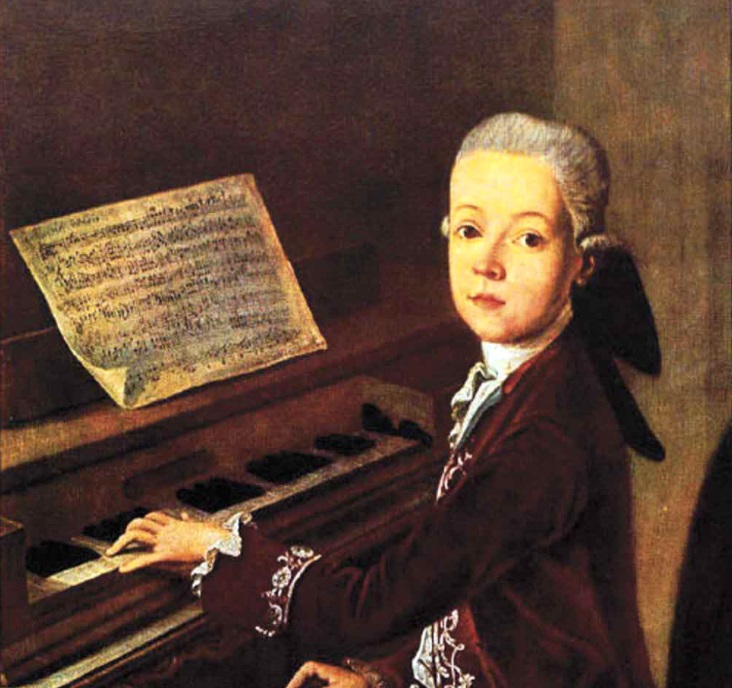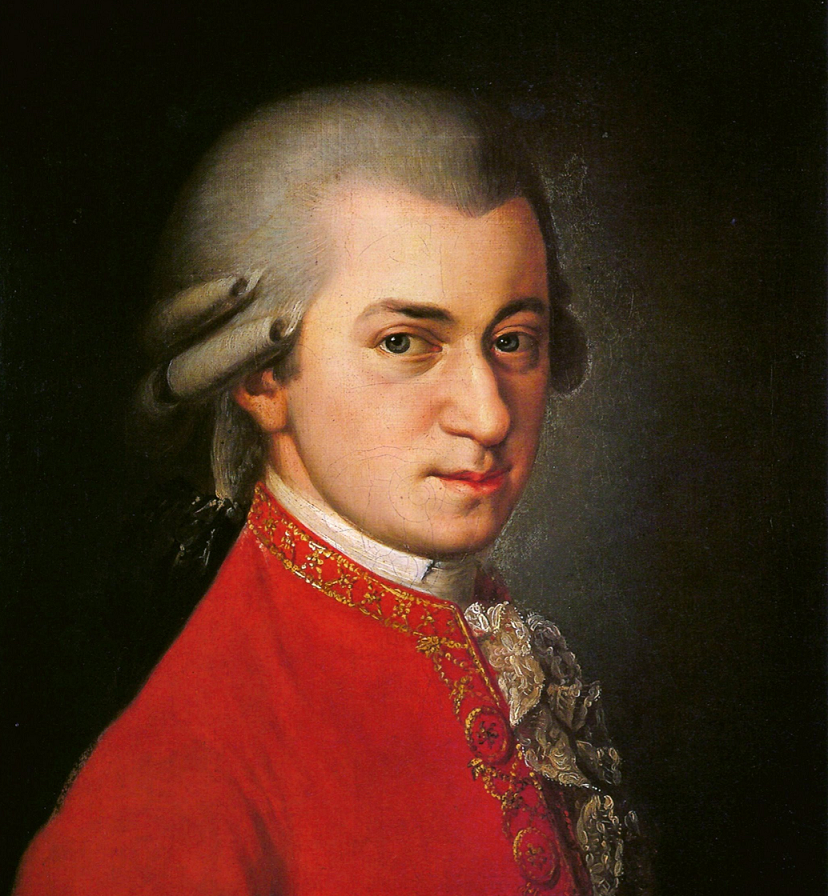
Baptized as Johannes Chrysostomus Wolfgangus Theophilus Mozart, Wolfgang Amadeus Mozart is the name that this Austrian composer is known by. Mozart has been widely accepted as not only one of the greatest composers of the Classical period, but also one of the greatest in all of Western music history. It’s been said that his type of talent is seldom seen. His music had a natural flow and was irresistible to not like. Mozart was able to use his mastery and conviction to express sorrow, humor, or joy in his works of music. He accomplished something no other composer ever has in music history; he wrote music in all existing genres of his time. In addition, he excelled at every one of them.
DISCLOSURE: This post may contain affiliate links, meaning when you click the links and make a purchase, I receive a commission. As an Amazon Associate I earn from qualifying purchases.
Read also: Interesting Mozart Facts
Mozart Biography and History of Wolfgang Amadeus Mozart
There are many anecdotes about Mozart as a child. For example, it was said that he had begun picking out chords with precise pitch memory when he was just three, could play short pieces by the time he was four, and at five, had begun scribbling and composing a concerto. As a matter of fact, there is a somewhat intellectual disagreement about whether Mozart actually wrote his first musical compositions at age four or age five, but they still agree that he wrote three within weeks of one another.
When he was seven years old, it’s said that at a musical gathering, he picked up a violin, snever having had a lesson, and sight-read part of the work with absolute perfect precision and accuracy. By eight, he had written his first symphony, most likely with his father transcribing most of it for him, but the implication is simply astounding! Mozart became the most celebrated and most known child prodigy as he was an unusually gifted child.
He was the most universal of all composers, still able to accommodate the specific tastes of each and every musical audience. Some of his later works, such as operas, piano concertos, and symphonies, were and still are superb examples of music imitating art. His music was so profoundly well composed, that even his lesser works still feature masterful music as well.
From the time he was three, it could be seen that Mozart was not only a child prodigy but a musical legend in the making. Mozart ended up composing well over 600 musical works and he is still revered today as a composer of which there is no comparison.
Birth And Childhood
Mozart, born in 1756 on January 27, was the last of seven, and only one of two surviving children born to Anna Maria, whose maiden name was Pertl, and Leopold Mozart. His father was a well-known composer himself, being the assistant to Salzburg Court’s concertmaster, as well as an instructor and author of a famous how-to textbook on violin playing. Both elder Mozarts stressed the importance of learning music to both their children and offered their support and direction to Wolfgang, and his sister, Maria Anna, who was nicknamed ‘’Nannerl’’.
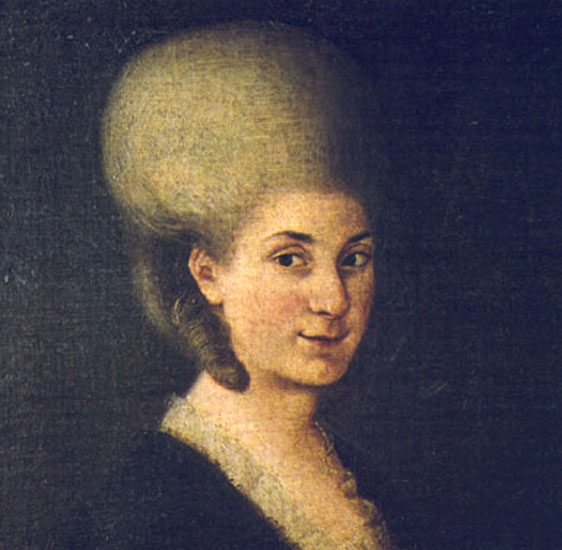
When his sister, at age seven, began taking lessons from their father on the keyboard, Mozart, who was three years old at the time, mimicked her playing. In no time, he was showing a strong knowledge of the chords, tones, and tempo and as a result, his father began tutoring him as well. Although Leopold was a dedicated, goal-oriented teacher who also made the lessons exciting while insisting on both excellent integrity, principal, and achievement. Fortunately for the children, they both exceeded his expectations.
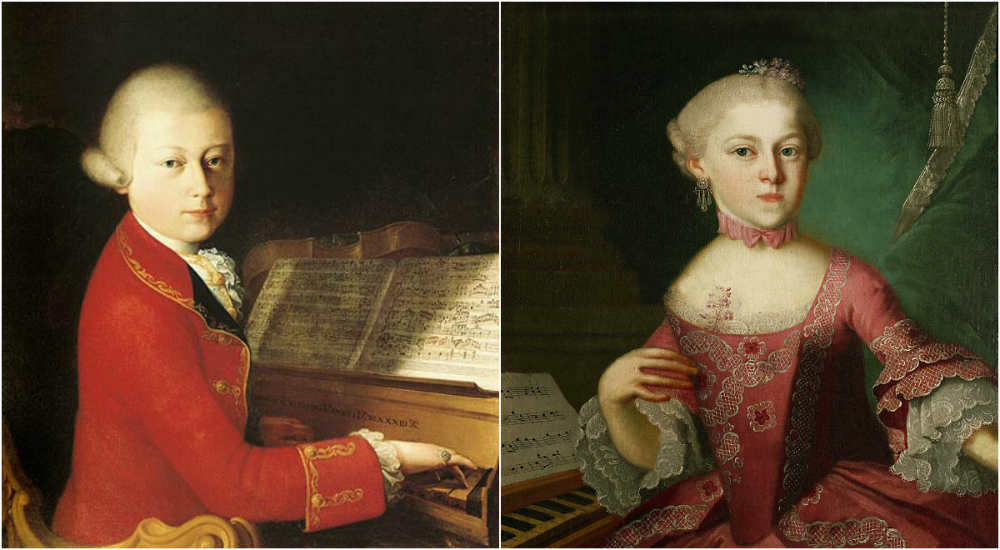
Mozart then began showing signs that he would surpass his father’s teaching when, at the age of five, he composed his first piece of music. In addition, he also displayed exceptional ability on both the violin and the harpsichord. It wasn’t long until he was also playing the piano, viola, and organ. It wasn’t long until Leopold realized the magnitude of his son’s talent.
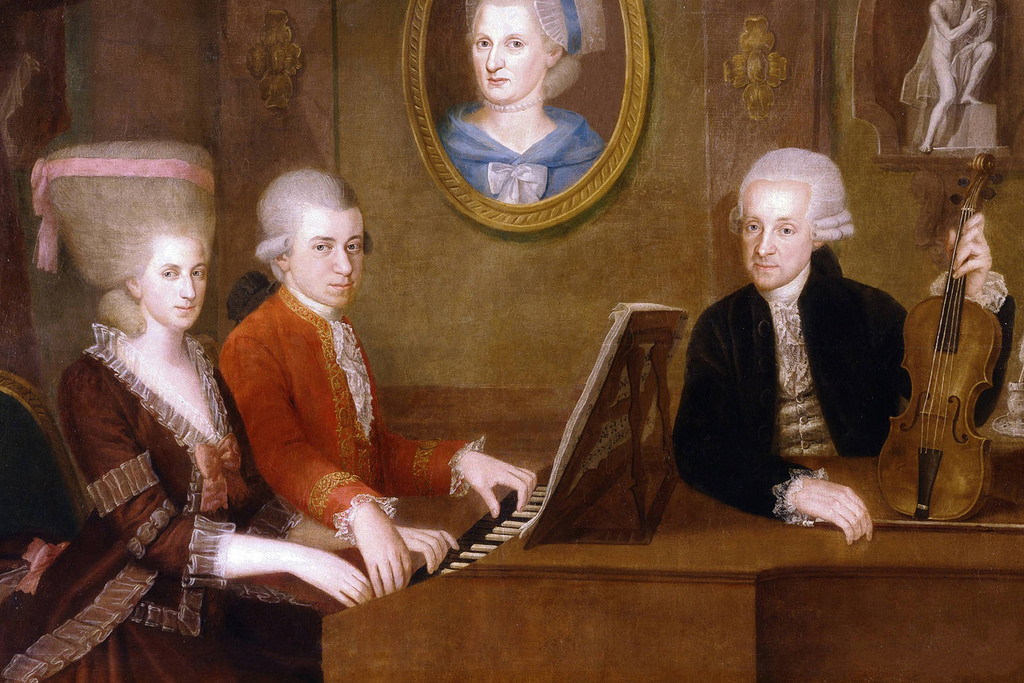
Adolescent Life And Travel
Eventually, when Mozart’s natural talents became so obviously advanced, Leopold stopped composing himself in order to devote himself full time to helping his son develop his talent to the fullest extent. Taking a leave of absence from Salzburg court, Leopold began traveling with both his son and his daughter, having them play as child prodigies, which they certainly were.
Nannerl showed extraordinary talent as well. Realizing this gift, in 1762, Leopold began to take Mozart, whom he referred to as ‘’the miracle which God let be born in Salzburg’’, and his sister traveling, to perform in Vienna, Austria, in front of the Imperial Court, as well as in Munich at the court of Maximilian III of Bavaria and the Imperial Court of Prague. Leopold felt as it was his duty to God to show this ‘’miracle’’ to the world and he was very serious about his duty, as well as his profits from doing so.
For the next few years, Leopold traveled with his family, taking them to the courts in addition to Munich, such as Paris, London, Mannheim, and Zurich. During this trip, Mozart applauded as a composer and improviser, not only won the admiration of many in the music genre, but he also met many influential musicians and composers. One such meeting of great importance is said to have been his meeting Johann Christian Bach, son of the infamous Johann Sebastian Bach. From these early meetings, Mozart was exposed to a wide variety of music, as well as many musical tastes and styles.
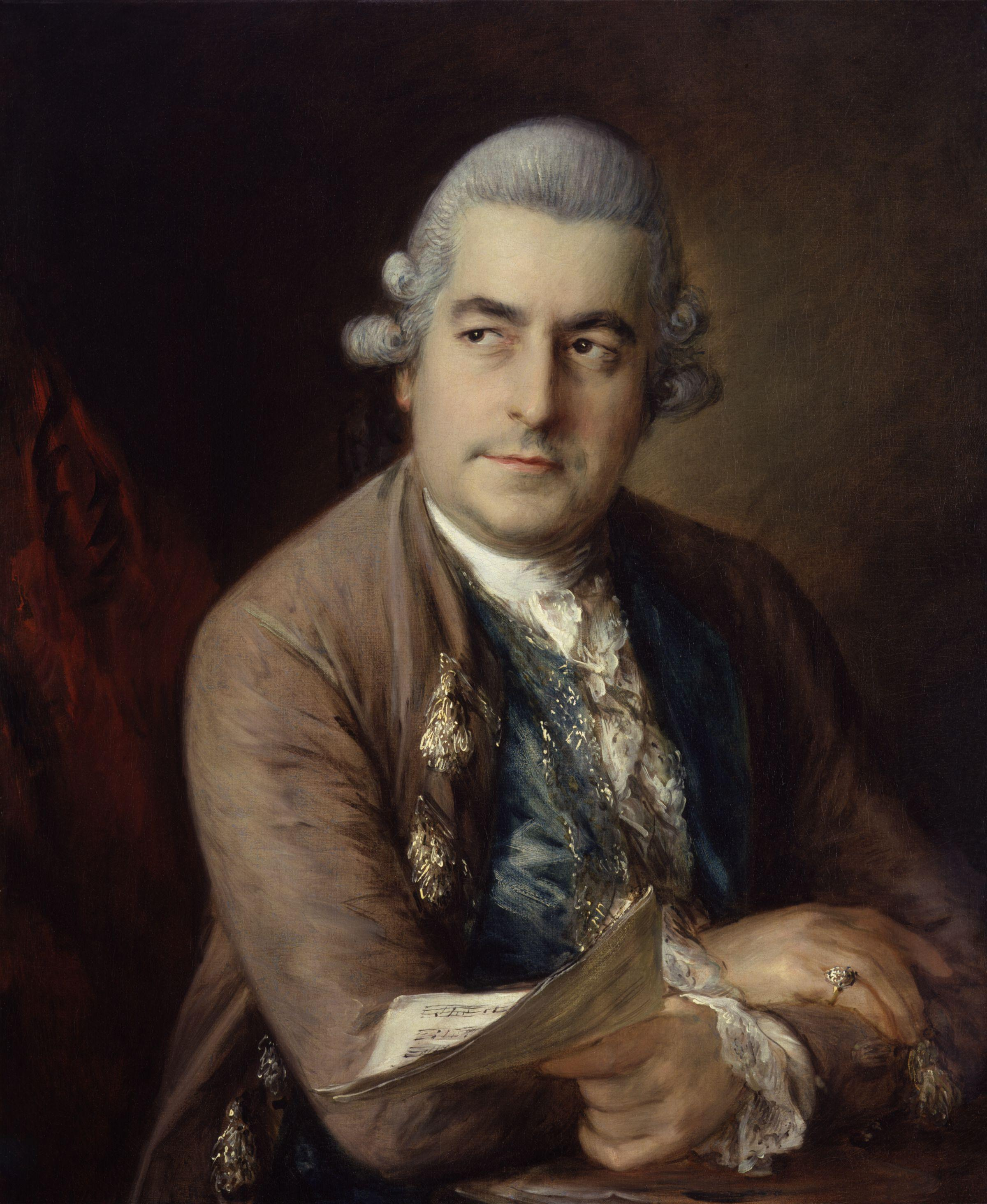
It needs to be said that even though it sounds like an elaborate fairy tale, traveling from court to court, performing for nobility and royalty, but it was not as it seemed. There was little money; Leopold needed to wait until they were invited to attend court, and then wait to be paid, or reimbursed, from that court before being able to travel to another court. The trips were not only full of tribulations, but the travel conditions were subpar at best. Furthermore, all three suffered from long-term and almost fatal illnesses while being so far from home. It was a lot to endure, but the Mozarts persevered.
Mozart ended up visiting London several times, influenced by Johann Christian Bach, from 1764-1765. After which, the family went back to Vienna in 1767 and stayed until almost the end of 1768. By this time, young Mozart was just twelve years old and his reputation had grown to that of older, established musicians. He had a degree of maturity beyond his young years.
Leopold and Mozart stayed at home for about a year before setting off again, this time leaving Nannerl behind with her mother. She had reached thirteen, which was considered to be close enough to the marriageable age that she was no longer allowed to perform in public. She would no longer be able to showcase her extraordinary musical talent with her brother. This was custom and didn’t seem out of place at the time. Now, of course, she would have been given every advantage her brother would get. One has to wonder what she might have accomplished had it circumstances been different.
Teen Years And Traveling
In 1769, Leopold and Mozart set off once more on an Italian outing which lasted until 1771, a bit longer than the others had lasted. Mozart’s father still wanted to put his son’s abilities on display, both for God and prosperity, but he truly believed in Mozart as both a performer and composer. Mozart was very well-liked in Italy where he received an opera commission, he was named an honorary by the Pope in a knightly order in Rome, and at Bologna, he was awarded membership within the Accademia Filarmonica in spite of being too young at the time. The rule typically required members to be twenty years old; Mozart was no more than fifteen at the time he received his membership.
While he was spending time between Italy and Salzburg, Mozart produced some of his first large-scale works between 1770 and 1772. After which, Mozart and his father once more returned to Salzburg in March of 1773. Near the end of this Italian trip, Mozart wrote the first of his works which is still performed today, Exsultate.

Due to the death of Leopold’s benefactor, the former archbishop, a new archbishop was appointed and he chose the aging prodigy as assistant concertmaster, which included a small stipend. This happened as he and Leopold had just returned from their Italian journey. This gave him the liberty of working in a variety of musical genres while composing symphonies, sonatas, masses, serenades, string quartets, and a few operas. Despite only writing five, violin concertos became a passion of Mozart’s, three of which are now considered an important part of any serious violinist’s repertoire.
He then turned his talents to writing piano concertos in 1776, with his crowning composition, Piano Concerto Number 9, which was written right after turning 21. Even though his position allowed him much freedom, he had grown bored with Salzburg and began searching for positions elsewhere.
Adult Traveling Years
Whether Leopold agreed that his son’s talent was too big for Salzburg or not, Mozart, at 21, left to find more gratifying work elsewhere. In addition to being ambitious, he also truly believed he was destined for more, which was also believed by his father. So, in August of 1777, he began traveling with his mother, instead of being accompanied by Leopold who could not get permission to leave his position. Although there were several job prospects for Mozart, none of them amounted to anything. Their trip took them to first to Munich, then to Augsburg, where they stayed with relatives, and then on to Mannheim, where Mozart met the infamous Mannheim musicians.
The Mannheim musicians were at that time said to be the best in Europe. In addition, while in Mannheim, Mozart taught, wrote, and played, in addition to falling in love with one of the music copyist’s daughters who also sang soprano, Aloysia Weber. In the end, nothing became of either the romance or a position.
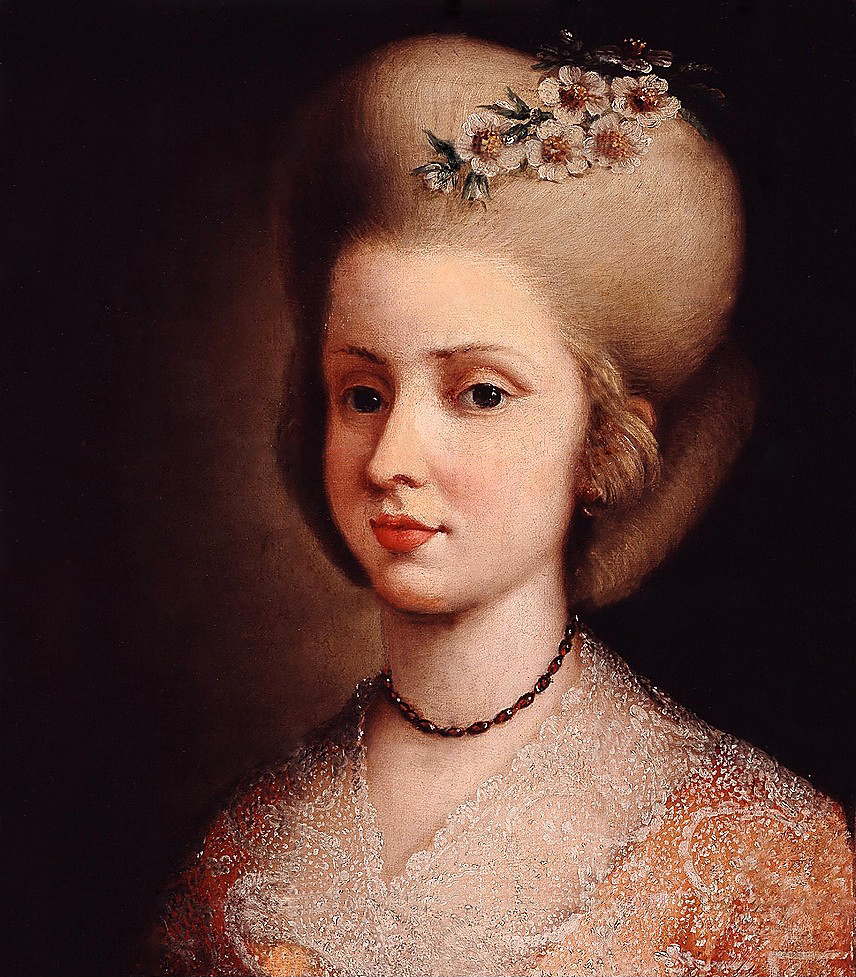
Mozart, being young and robust, wanted to travel to Italy with the Weber family instead of going on to Paris, but when his father got wind of this notion, he shut it down immediately. Instead, he asked his wife to continue on with their son to Paris and to Mozart he basically told him to stop fooling around, that Paris was where he would find fame for his ‘’great talent.’’
One of his most famous symphonic works which included the Parisian taste, display, and devices, was written while there. Unfortunately, after months in Paris, Mozart was running out of money and had to resort to selling some of his things to pay for lodging, traveling, and expenses. Then, after the untimely death of his mother, Mozart returned home to Salzburg once more, after his father secured a position for him at court. He’d been gone for sixteen months.
While in Salzburg, Mozart began combining the many varieties of musical tastes he’d witnessed in his travels, the outcome being that he wrote some outstanding works. However, he was thrilled when he was called to Munich for a commission composing a serious Italian opera. Mozart traveled to Munich some ten weeks prior to the premiere, probably to get away from Salzburg, which he thought of as boring. Leopold joined him later and the premiere was a success, given in January of 1781, when Mozart was twenty-five. It was directly afterwards that he and his father were summoned back to Salzburg by the Archbishop.
In Vienna
When Mozart was first recalled back to Salzburg, the Archbishop treated him with contempt; his station was considered to be below the valets, but yet above the cooks, and not in the least agreeable to Mozart. After the Archbishop forbade him to perform for a visiting dignitary, losing Mozart about a half year’s salary, an argument ensued, and Mozart asked to be allowed to resign.
The Archbishop vehemently denied to begin with, but then ended up relenting with a rather discourteous adjournment including the physical removal of Mozart himself from the Archbishop’s company. Once this happened, though, Mozart was free to go wherever and do whatever he wanted, but his father sided against him in the tumult with the Archbishop, driving a wedge between the two. He decided upon settling in Vienna, doing freelance performing and composing, where he lived with the Weber family for a time. The patriarch, Fridolin, had past away and the family was taking in lodgers in order to help make ends meet.
Although Mozart’s desire was to gain a court appointment, he began taking on students while both writing music, some for publication, and playing the piano, albeit not in his own concerts, but in others, establishing himself as the best keyboard player in Vienna. Mozart even dabbled in writing an opera, prospering well as a composer. His German opera premiered on July 16, 1782, achieving huge success and fully establishing his reputation as a brilliant composer. Afterward, the opera was quickly picked up others, being performed all over Europe.
Aloysia Weber, who Mozart had admired frequently in the past, but had rejected him, was now married to Joseph Lange. Her sister Constanze, however, was available and a courtship between her and Mozart developed. When the rumor of their romance first reached Leopold, Mozart fervently wrote him in the summer of 1781, vehemently denying his feelings for her and he even moved to other lodgings in order to quash such rumors. Mozart knew his father would reject any idea of marriage and the interruption of his career. Be that as it may, Mozart wrote to his father in December of the same year, requesting his father’s blessing to marry Constanze.
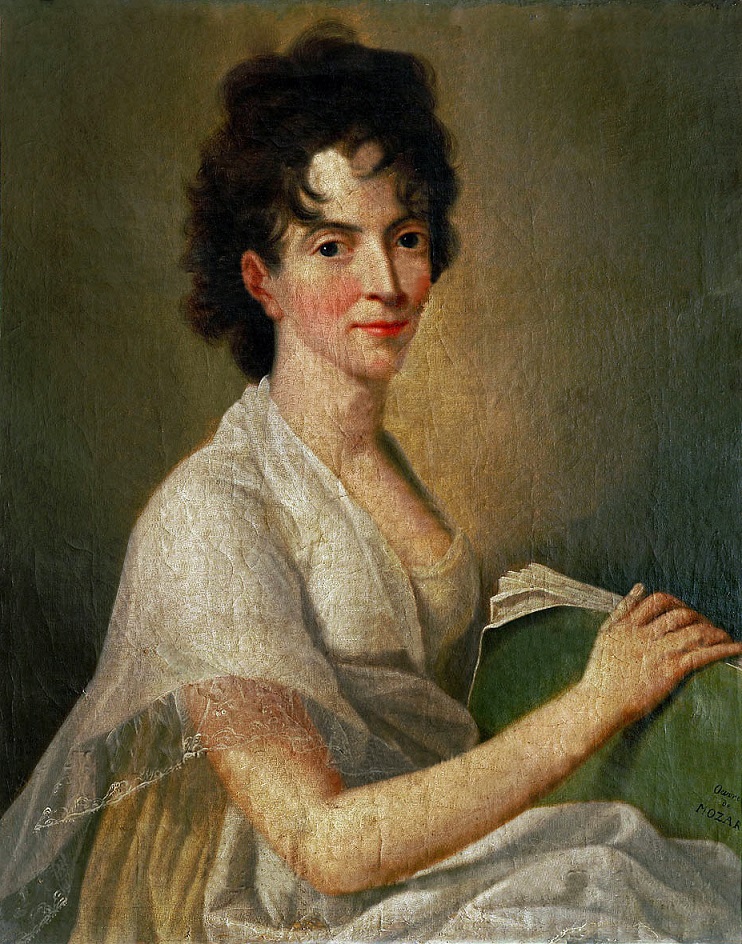
It was also rumored that Constanze destroyed letters between Leopold and Mozart because of their disagreement about the marriage. It was known, though, that they did indeed strongly disagree on the subject. It is understood that Leopold’s reprimands were the reason she destroyed his letters, leaving only Mozart’s letters to his father as evidence as to what was disagreed about specifically. Because of the strong encouragement from Constanze’s mother, and the fact that he was in love, Mozart felt committed to getting married. It was most definitely a low point in Mozart and Leopold’s relationship, but his father eventually consenting to allowing the two of them to marry. Mozart and Constanze married on August 7, 1782. They had six children altogether, but only two survived.
After Marriage
Mozart, having already became enthralled with Johann Sebastian Bach, whom he had met in his traveling youth, also became familiar with George Frideric Handel’s work as well. Mozart studied many scores of the masters of Baroque, which would later influence his own musical compositions likewise, for example, in Die Zauberflote and a symphony, simply referred to as No.41.
Mozart and Constanze lived a rich and lavish lifestyle, with his considerable income from both concerts and publishing, they lived in an exclusive apartment, kept several servants, and sent their sons to private schools. In 1783, they traveled to visit Mozart’s father in Salzburg, where Leopold and Mozart’s sister were affably cordial to his wife, but nevertheless, Leopold was still reluctant to completely accept the marriage and his sister was simply acting as the faithful daughter. However, the visit triggered the piece of one of his greatest compositions, although not finished, the Mass in C minor was premiered in Salzburg, the solo soprano parts being sung by Constanze.
Mozart, in Vienna, 1784, met Joseph Haydn, another composer, and they became quick friends. At times when Haydn visited Vienna, he and Mozart would play in an extemporaneous string quartet. In fact, Mozart dedicated six quartets to Haydn which are supposed to be in response to Haydn’s Opus 33 from 1781. Clearly struck by Mozart’s talent, Hadyn was said to have told Leopold that he, as an honest man before God, believed his son was the greatest composer every known to him, both as a person and as a composer, and that, furthermore, his skill and taste greatly outweighed that of any others.
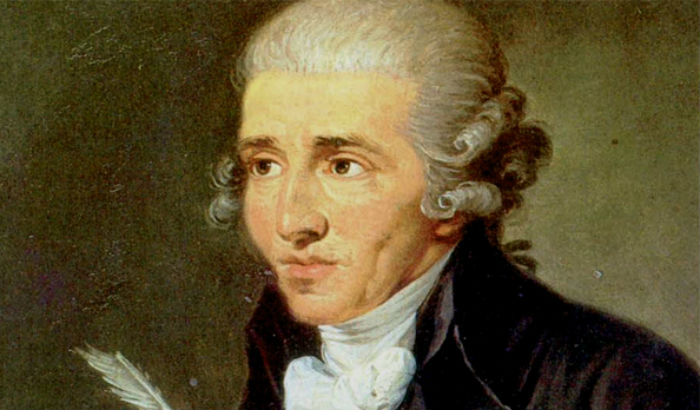
Mozart put on concerts with himself as a soloist from 1782 until 1785. He presented three to four new piano concertos each and every season. As space in theaters was hard to come by, he’d book anywhere he could play, such as a huge room inside an apartment building or a ballroom inside a restaurant. These solo concerts were extremely popular and the concertos which he performed are still part of a pianist’s repertoire all these years later. It was said that during this time, Mozart had an astonishing connection with his audience, showing his eagerness to compose and play. He had a profound affect on the musical genre at that time, transforming it, and perfecting it as well.
Mozart and his wife continued to live lavishly, keeping nothing back for savings, which would end up making the hardship they would later face even tougher. The period of financial success was somewhat short and didn’t prepare them for facing hardships. 1784 was Mozart’s most creative and productive year of his performance life.
As a matter of fact, in the course of five weeks, he was presented in a total of twenty-two concerts, producing five of those and performing as the soloist. In an average concert, he would select some of his existing pieces to play, including various piano concertos and symphony performances. It was also during this time that Mozart began to archive his many works, which some feel was due to his personal knowledge of his own place in musical history.
In 1784, on December 14, Mozart joined the Freemasons. The Freemasons were a fraternal order which was involved in charity work, morality, and the development of friendship within the order. Mozart was well honored and admired within the group; he attended meetings and involved himself in various activities. Being a Freemason played an integral part of the rest of his life; many of his friends were Freemasons and he even composed Masonic music as well.
From Concertos To Operas
Unfortunately, despite Mozart’s outstanding success as both a solo pianist and composer, he began to have serious money problems. Even though he had been very successful and had made more money than most musicians, he had taken his father’s advice about being friendly with the nobility and those of high society which led him to believe he should live like them as well. Mozart believed all his financial troubles would vanish upon acquiring a court appointment.
Despite his recent successes and notoriety, Italian courts still preferred Italian composers under the direction of Kapellmeister Antonio Salieri. The relationship between Salieri and Mozart has been the base of much conjecture and opinion. It was true that letters which were written between Mozart and his father revealed their united distrust of Italian musicians, specifically Salieri. In fact, years later, after Mozart’s death, speculation circled which named Salieri’s poisoning him as the cause of said death, but there is no evidence whatsoever which backs this up.
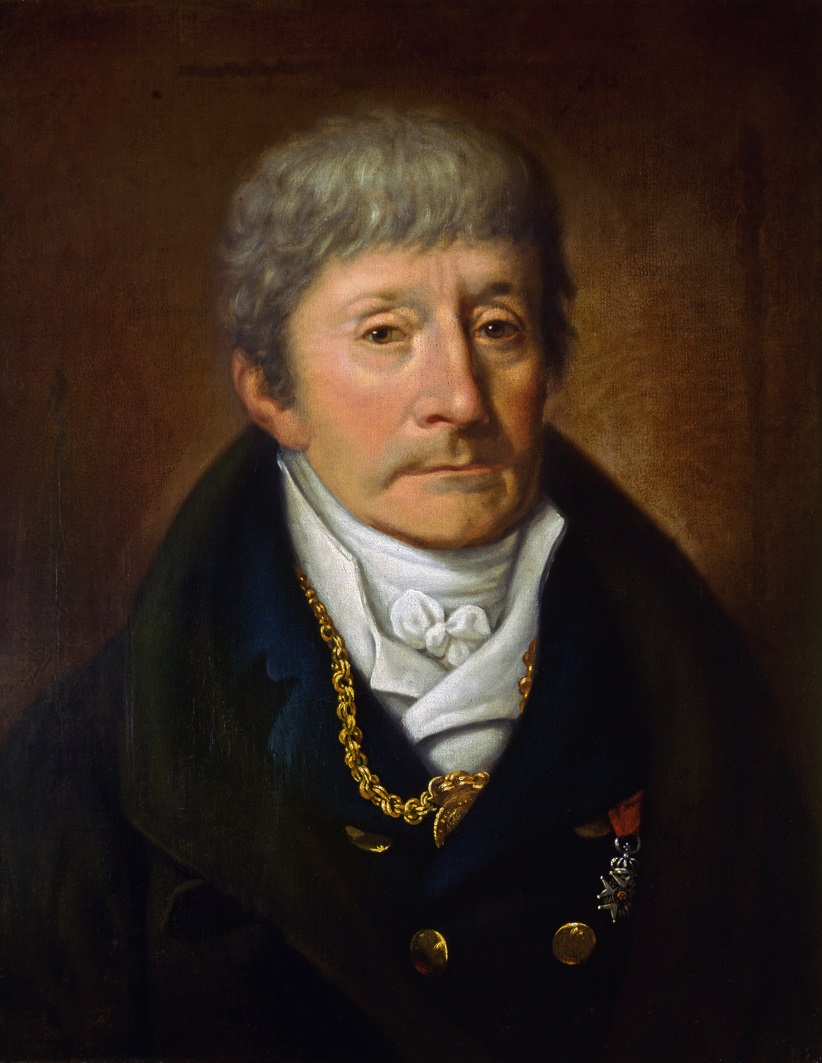
The truth is that both composers were often in competition for the same position or consideration, but there isn’t any evidence which points to their relationship being other than one of professionalism. They each applauded the others’ work and even worked together on occasion.
After Mozart successfully focused on being a piano concerto soloist and writer for several years, he decided to backtrack a bit, moving away from writing concertos and, instead, returned to writing operas. Near the ending of 1785, Mozart had the good fortune of meeting Lorenzo Da Ponte. Da Ponte, a Venetian librettist, was also a composer in addition to being a poet. A librettist is one who writes the libretto, which is any verse in, or intended for use in, any type of musical commission, such as in an opera or operetta, cantata, or musical, to name a few.
Da Ponte was already well-known as a librettist when he and Mozart met. They first collaborated to write the now famous opera The Marriage of Figaro, which premiered in Vienna in 1786, was a success. Later the same year, the second performance was held in Prague to an even more successful reception. This initial success led the two to collaborate once again, writing another opera, Don Giovanni. This time the first performance was held in Prague, 1787, to much exaltation, but it was much less received later in Vienna in 1788.
These two operas are among Mozart’s most famous and important compositions and are not only the backbone of operatic music, but they are also standards in any operatic repertoire today. Grievously, Leopold died before he could witness these musical events. Mozart’s father died on May 28, 1787, having not ever heard his son’s beautiful, and now famous, operas.
The Later Years
Nearing the end of the decade, Mozart’s circumstances grew worse. By 1786 he had begun to refrain from appearing as frequently in public concerts and his income began to rapidly shrink. It was a tough time for musicians specifically in Vienna due to the Austro-Turkish War; wealth declined in general as did the aristocracy’s ability to continue supporting musical endeavors.
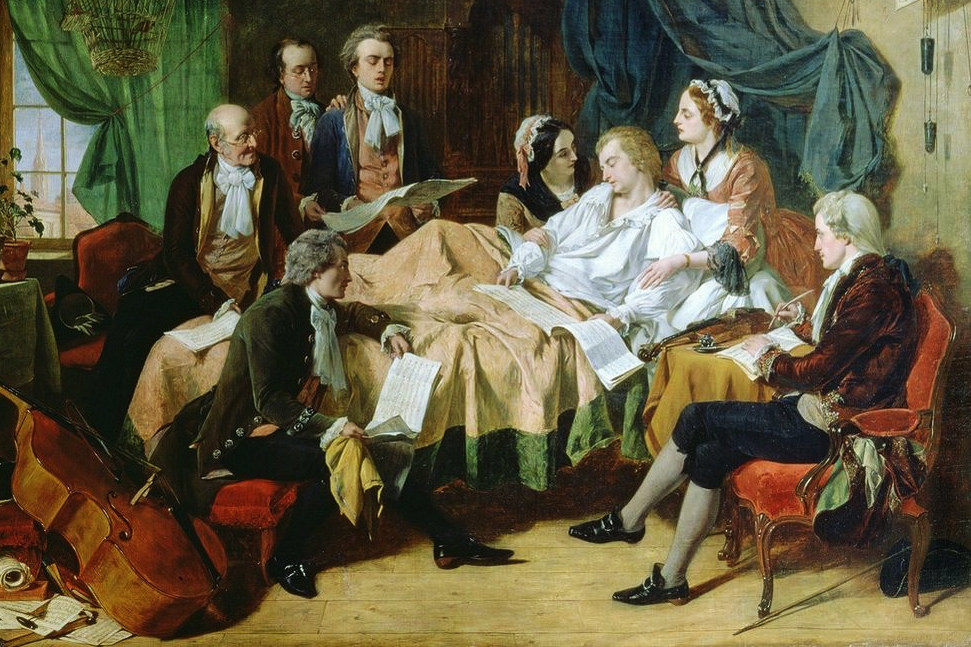
In December of 1787, Mozart was appointed as chamber composer by Emperor Joseph II. This was due to not only the death of Gluck, but also, and more so, in order to keep Mozart from leaving Vienna and seeking employment elsewhere. Unfortunately, the post was more of an honor than a legitimate job, paying very little for part-time work. Albeit, the moderate income was very much welcomed for Mozart, who had already been grappling with debt and encumbrance. This income, though little enough, provided him with the means to explore other musical ambitions.
Mozart and his family moved in 1788 to a suburb of Vienna, having left the city. Although it was thought the move was to help reduce his debt, it was actually to increase the size of their living space. In addition, he began borrowing money, writing heart-wrenching letters to his friend and fellow Mason Michael Puchberg. It was suggested that Mozart was suffering from depression as well, as his musical output decreased as well. In fact, it was during this time that he wrote his last three symphonies and last three operas.
Mozart traveled extensively during the last couple of years of the decade, hoping to regain his earlier success, but was only awarded with isolated successes at best. These were some of his worst years, when, in his own words, he experienced ‘’black thoughts’’. It’s now believed that Mozart was more than likely bipolar, which would further explain his periods of hysterical, hectic creativity.
The Grand Finale
The last two years of Mozart’s life was a period of great productivity as well as personal healing. Mozart, now in his mid-thirties, produced some of his greatest work at this time, including the opera The Magic Flute, his final piano concerto, and a clarinet concerto.
Furthermore, he was able to gain back some of his notoriety and fame after repeated performances. Additionally, his financial situation also began to improve once more. It seems that wealthy music patrons agreed to pay annuities to Mozart in return for his producing an occasional composition. He also profited from the purchase of dance music he’d written in his position as Imperial chamber composer. No longer in need of borrowing, Mozart began paying off his debt.
However, Mozart’s health, both mentally and physically, began deteriorating at this time. He began quite ill in Prague while there for the September 6, 1791 premiere of an opera, La clemenza de Tito, which he had also written that same year. He recovered and continued working, conducting the premiere of The Magic Flute on September 30. Afterwards, his health further deteriorated, until November 20, when he became bedridden. He suffered from pain, swelling, and vomiting.
Both his wife and sister nursed him in his final days in addition to the family doctor. Mozart only had finished his Requiem on his mind, which up until then, had remained unfinished, but his work at this time was minimal at best. Mozart died in his home on December 5, 1791 at the age of 35.
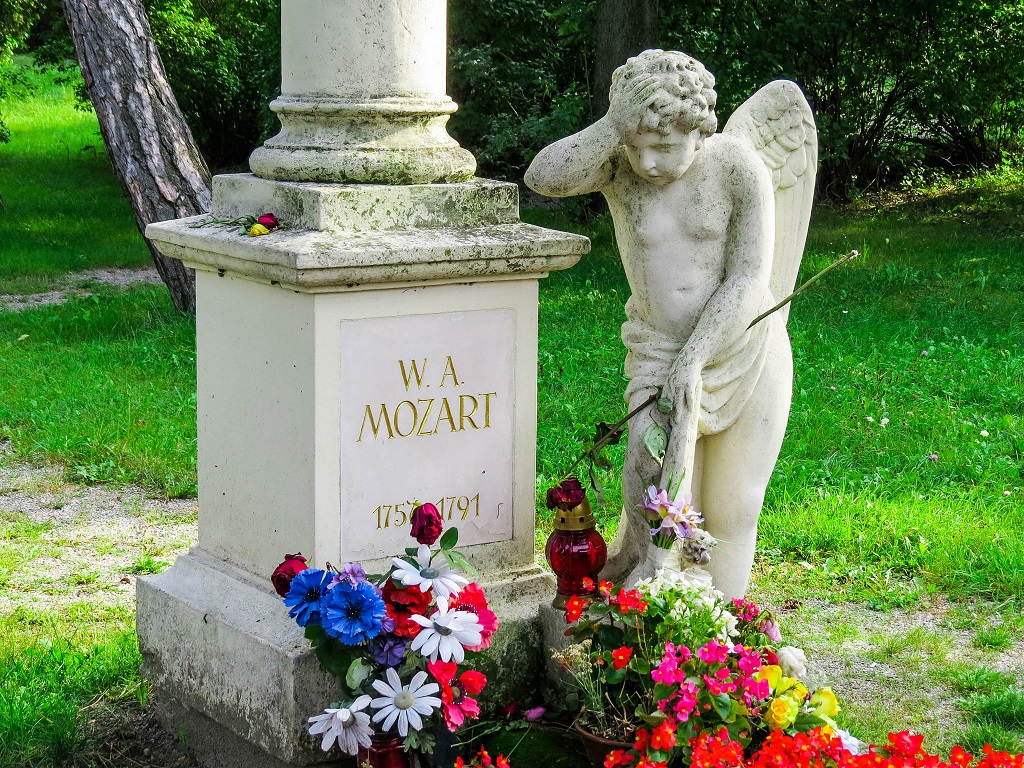
He was buried, according to Viennese custom, in a communal grave outside the city at St. Marx Cemetery on December 7. Also according to Viennese custom, no mourners gathered at his burial other than a couple of his friends and fellow musicians. It’s been said that it was stormy and snowing the day of his internment, but it was neither. In actuality, it was clear and calm.
The cause of death is still not known with any certainty, but the official record refers to his having a rash, which is a symptom rather than a diagnosis. Modern day researchers have suggested many causes, some one hundred and eighteen altogether. These causes include acute rheumatic fever, trichinosis, streptococcal infection, influenza, a rare kidney ailment, and mercury poisoning, which is what led to the belief of Mozart’s supposed rival, Antonio Salieri. Of course, this was proven to also not be true.
Mozart’s seemingly modest burial was not a reflection of his public standing as a composer. In fact, memorial services and concerts were very well attended in both Vienna and Prague. Immediately after his death, his reputation rose to great heights, bringing many to avail his musical works, biographies were written, and there was great competition in completing his unfinished works being sold by Constanze. This was no doubt in order to pay off the large debts this Mozart family had incurred. She was also able to gain a pension from the emperor in addition to organizing several memorial concerts in her husband’s honor which proved to be profitable as well. Due to these efforts, Constanze was able to gain financial stability for herself and their children, allowing her to continue sending them to private schools.
Mozart died at a very young age, even considering the time. He was a child prodigy whose rise to fame and notoriety was early on and whose full potential was probably never realized. At the time of his death, he was one of the greatest composers of all time and he remains to be so to this day. His musical expressions were bold, complex, and dissonant, requiring a high level of talent and technical ability from those who performed it. Indeed, he was often viewed as a difficult artist. Even so, even before the end of the eighteenth century, two different firms had embarked upon collecting substantial editions of his works.
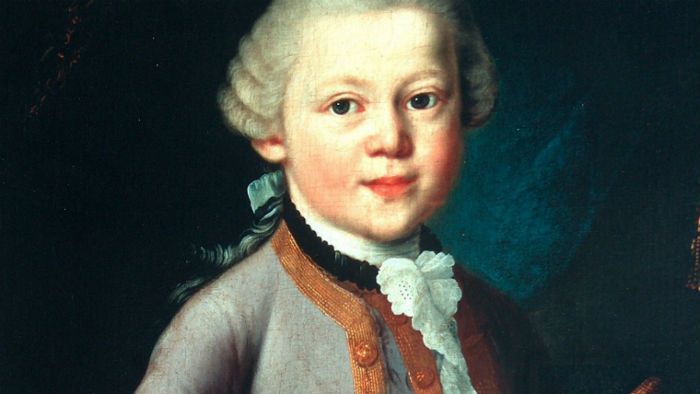
Mozart’s works have remained popular ever since and have served as an influence to many others, such as Beethoven. Many biographies have been written about him, his life, and his works. In addition, his music has been performed over and over by many musicians, much of his work being standards in a musicians repertoire. Mozart, with the help of his friend Joseph Haydn, conceived as well as perfected the modern forms of opera, symphony, concerto, and string ensemble which marked the era known as the classical period. His music, unique and individualistic at the time, has endured over the ages, continuing to bring joy to both musicians and music lovers yesterday, today, and tomorrow.

Mozart’s Appearance
Mozart was described as being a very small man, both thin and pale, with fine, pale hair that he was rather proud of. He was said to have large, very intense eyes that gave no sign of his genius. Even though he was somewhat vain, his complexion was pitted due to having smallpox as a child. He was raised a Roman Catholic, remaining devout until his death.
He enjoyed dressing elegantly and lavishly. His voice was a tenor, but he speech was moderately soft when speaking and often delicate when singing, except when he was excited. His voice would then become both powerful and energetic. Mozart was a hard worker, often working long hours in order to finish compositions well ahead of deadlines.
He lived mostly in the focal point of the musical world in Vienna and as such, was very well-known, having met a great amount of people as well as a great variety. In addition to his musical interests, Mozart also enjoyed playing billiards, dancing, and his pets. He kept a canary, a starling, and a dog, as well as a horse for recreational use/riding. He had a somewhat bawdy sense of humor, which has been preserved via letters which he exchanged with his cousin, Maria Anna Thekla Mozart, as well as in correspondence with his sister and parents. In addition, he even wrote obscene, or scatological, music, which he sang for and with his friends.
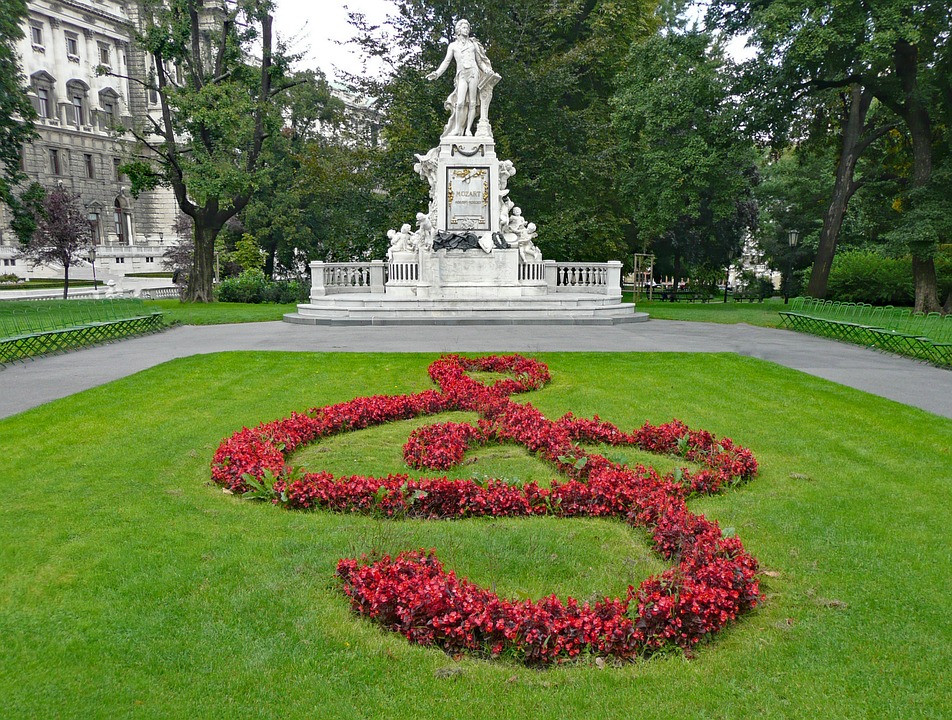
It’s definitely a shame that he died at such a young age, but his brief existence had a profound effect on music, the way it was played, and the way it is still played today. Mozart had a particular gift of adapting valuable features of others’ music for his own use and his travels aided in composing uniquely written musical compositions. Other composers have paid homage to his many works by writing variation sets based on his themes, but simply said, there will never be another Wolfgang Amadeus Mozart.

